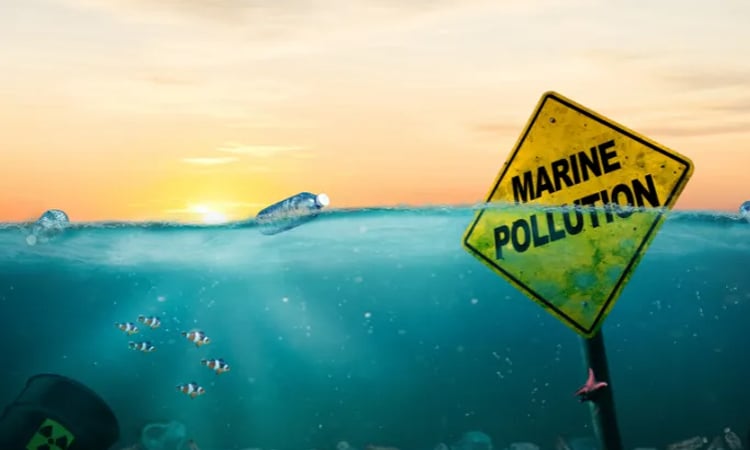News Flash
News Flash

By AKM Kamal Uddin Chowdhury
DHAKA, Jan 17, 2025 (BSS) - Urging the authorities concerned to take necessary initiatives for creating awareness among fishing community about marine pollution, experts have observed that continuous plastic pollution and unregulated waste management are damaging marine biodiversity, putting valuable coral reefs and marine life at risk.
They mentioned that the ocean being the largest carbon sinker, consumes 90 percent of heat and one third of CO2.
Rising marine pollution is disrupting this natural process, resulting in increased atmospheric heat. Oceans witness around 12 million metric tons of plastic waste into it each year, they added.
Talking to BSS, Shafiqur Rahman, chief scientific officer and centre chief of the Bangladesh Fisheries Research Institute (BFRI), Cox's Bazar, said that the ocean provides essential living conditions for over a billion people worldwide and is closely linked to the daily lives of more than three billion people.
The sea provides a variety of fish and plants, holds vast potential for import-export through maritime routes, and is rich in oil, gas, and mineral resources, making it a realm of immense economic potential, he added.
According to a recent study of UNDP Bangladesh, fishing communities are pulling down the ocean health by throwing hard plastics in mass, to around 40 percent marine pollution directly.
The study also found that these hard plastics combined with nets and ropes result to between 75 percent and 86 percent of floating plastics in the ocean which are larger than 5 centimetres and likely to end up into the ocean from abandoned, lost or discarded fishing gear.
As regular sea-goers, Shafiqur Rahman said fishing communities can directly reduce marine pollution.
He said Cox's Bazar, home to the world's longest sea beach, is littered with plastic bottles, polythene, torn nets, and other plastic waste.
This pollution kills marine turtles, dolphins, and whales every year, with Saint Martin's coral island facing the most significant threat, Shafiqur added.
He said the island's marine life is diminishing due to severe pollution, putting the 'blue economy' in jeopardy.
Shafiqur Rahman, however, said plastic is the most used synthetic material due to its low cost, lightweight and long durability.
"Plastics encompass the majority of marine trash which has been identified as a serious pollutant in both marine and freshwater ecosystems. Plastics are monomers based on polymerization with unique physicochemical characteristics and a stable structure that may persevere for hundreds of years in the environment," he added.
Shafiqur said microplastics can enter the coastal-marine ecosystem through a variety of routes.
Exceedingly small-sized plastics have the potential to entangle a variety of terrestrial and aquatic animals, resulting in death, he added.
Shafiqur said Bangladesh aims to tap into this global trade, leveraging its 118,883 square kilometers of maritime area and the immense potential of the blue economy.
By effectively managing and utilising its marine resources, Bangladesh can achieve significant economic gains, securing a prominent position in the global maritime economy, he added.
A fish trader of the Cox's Bazar area, Md Mansur, said they always try to create awareness among the fishermen regarding plastic pollution.
"We have to protect our ocean from pollution as we are living on it. The government should take more initiatives to protect the ocean from pollution," he added.
Professor of the Department of Respiratory Medicine of Bangabandhu Sheikh Mujib Medical University Dr Shamim Ahmed said plastics pose a significant health risk, leading to various diseases, disabilities and even premature death.
The harmful effects of plastics begin in the womb, causing issues like miscarriage and low birth weight, and continue throughout life, contributing to cancer, neurodevelopmental disorders, lung diseases, and more, he added.